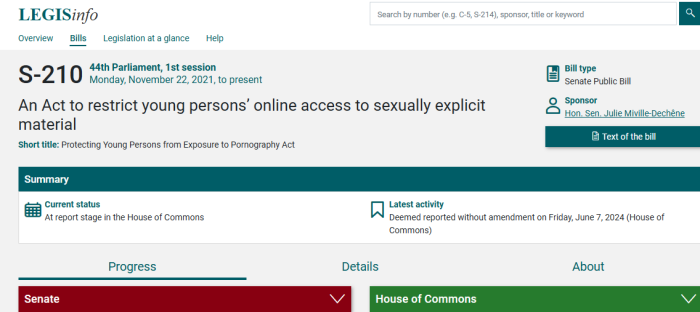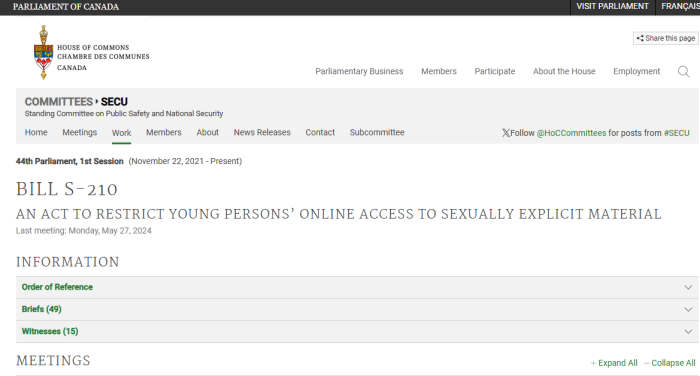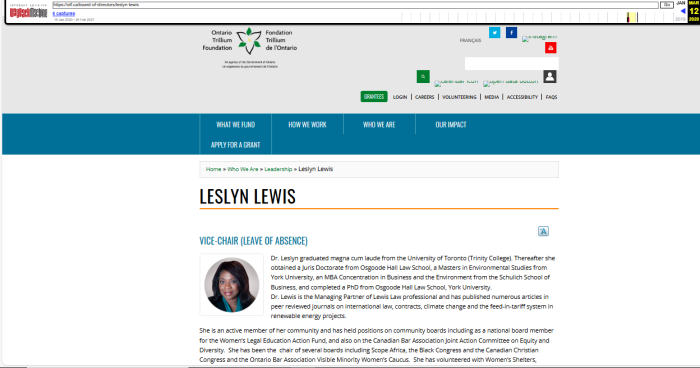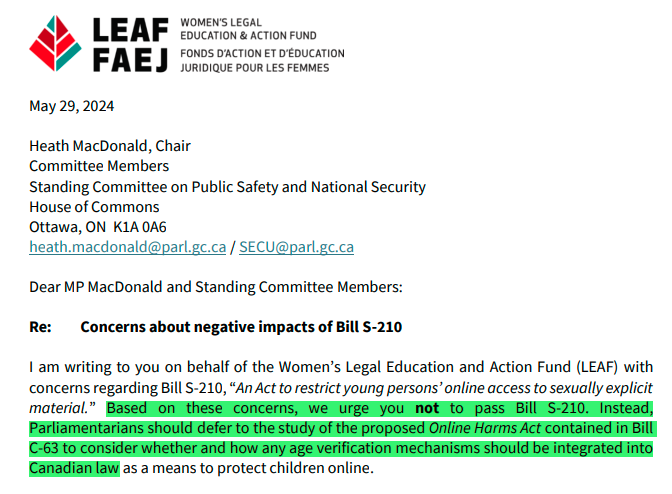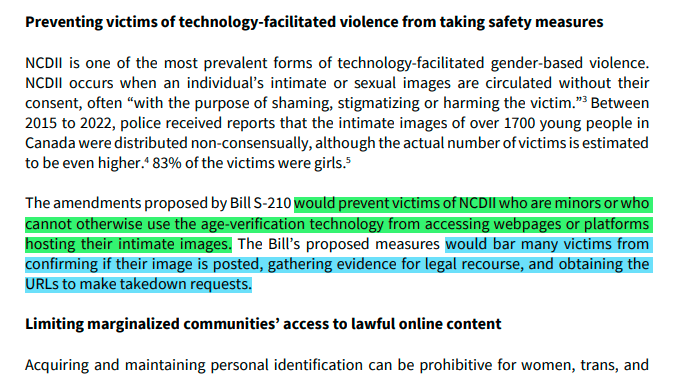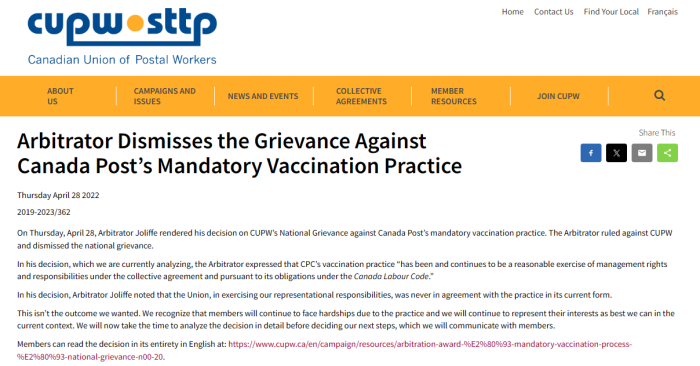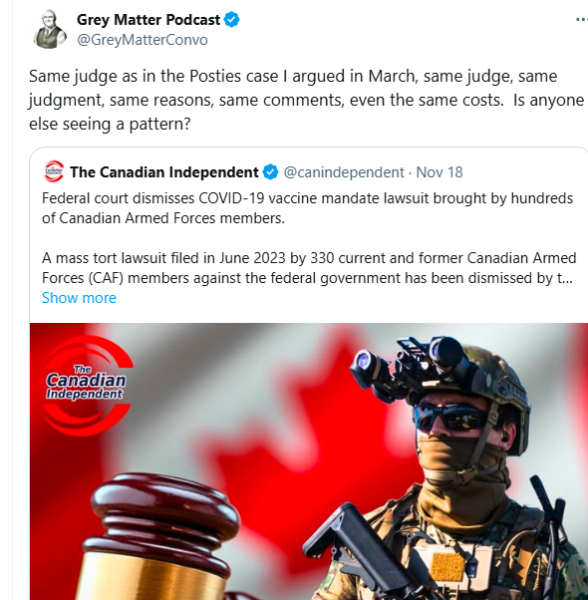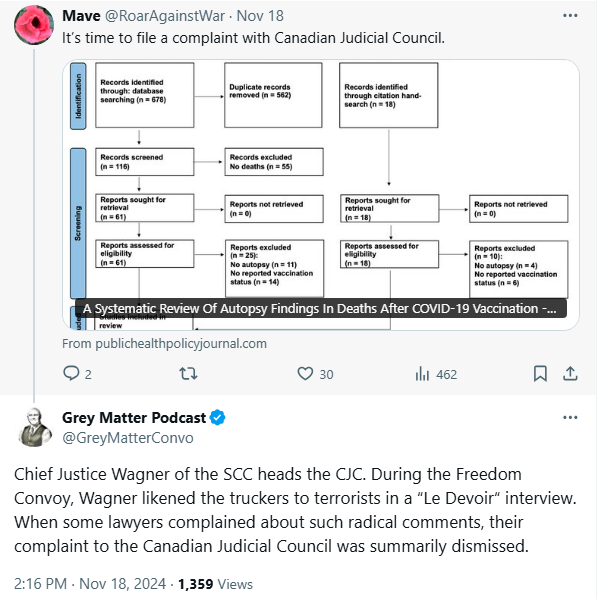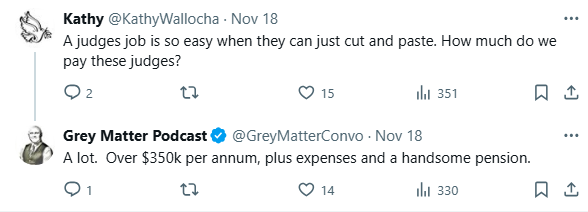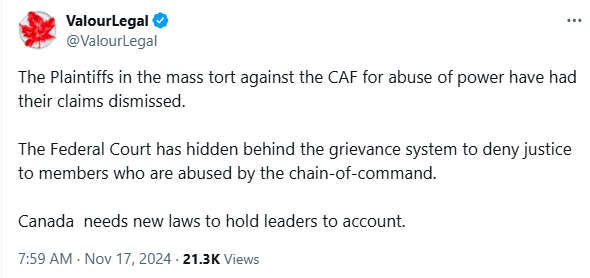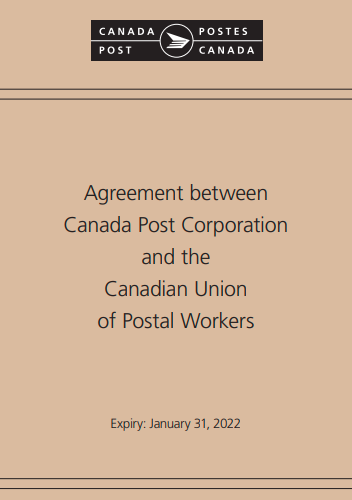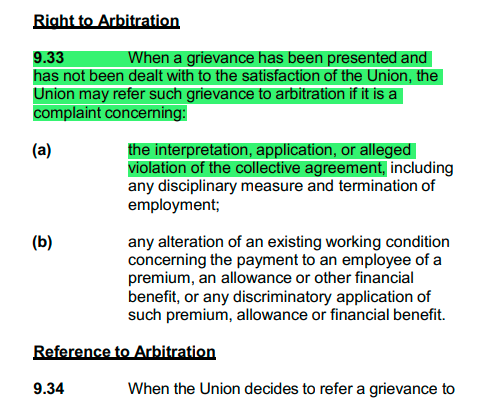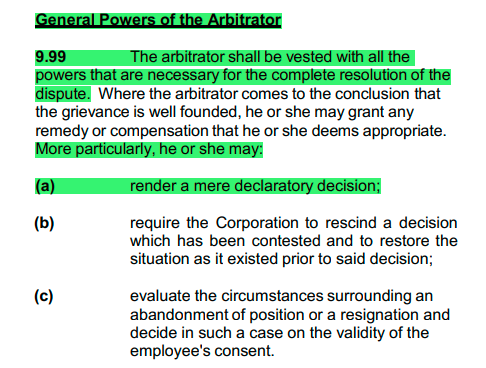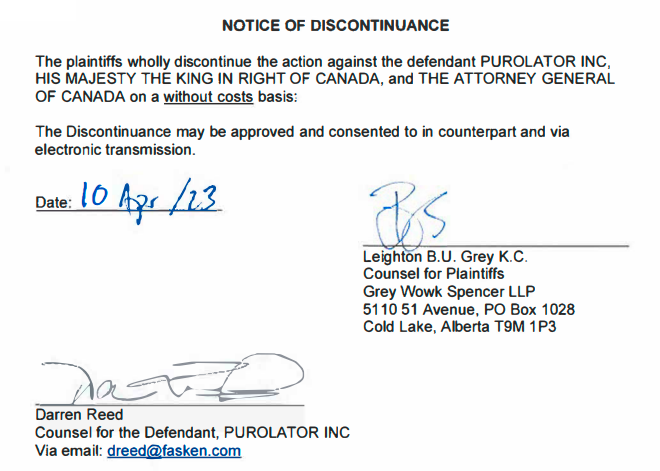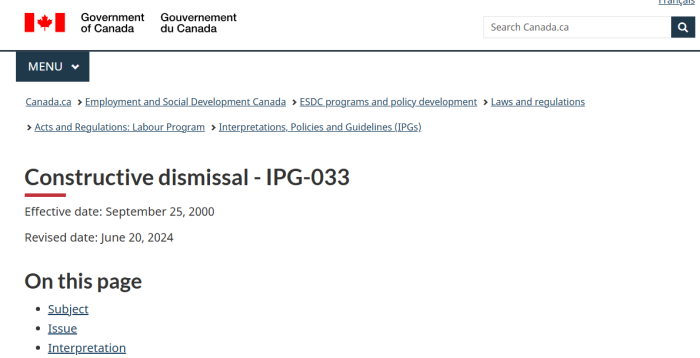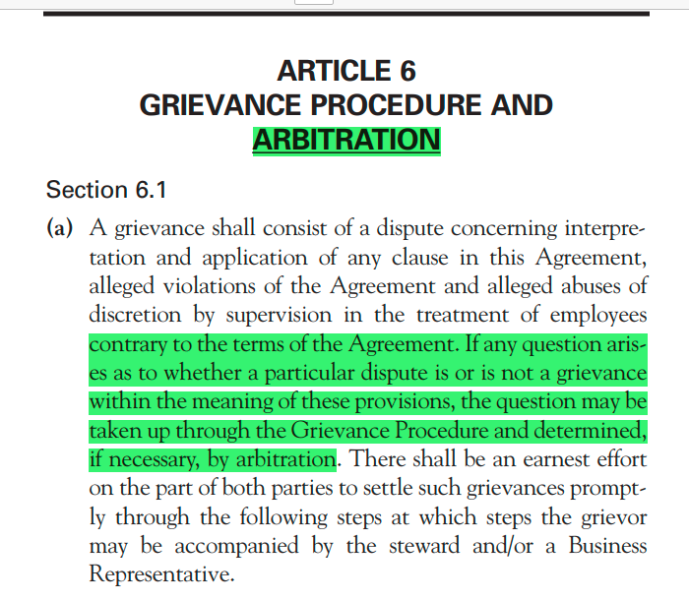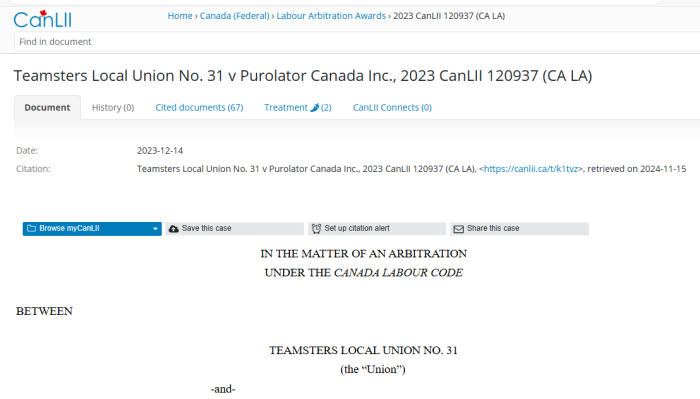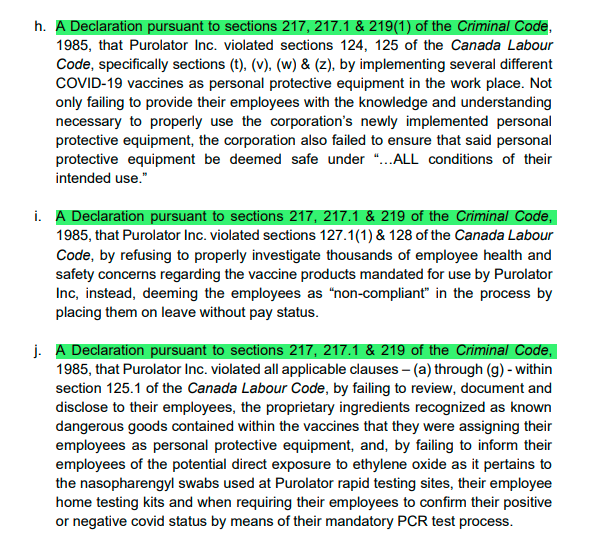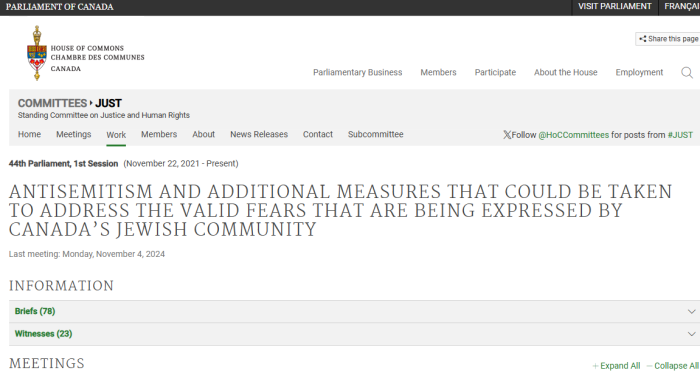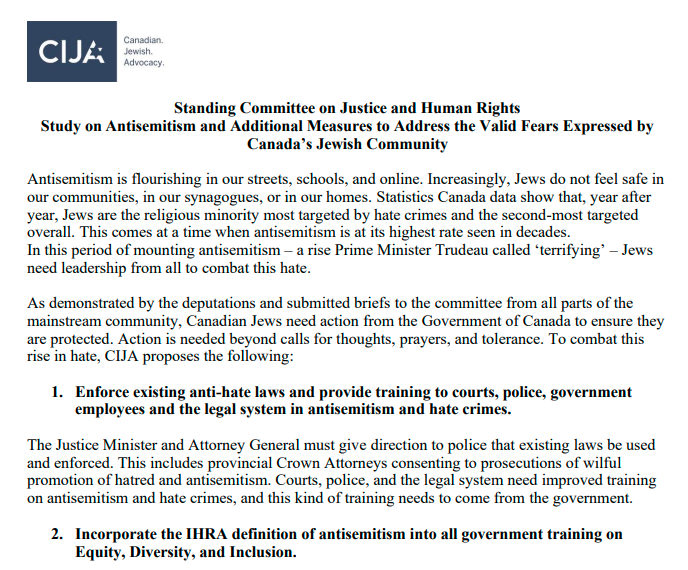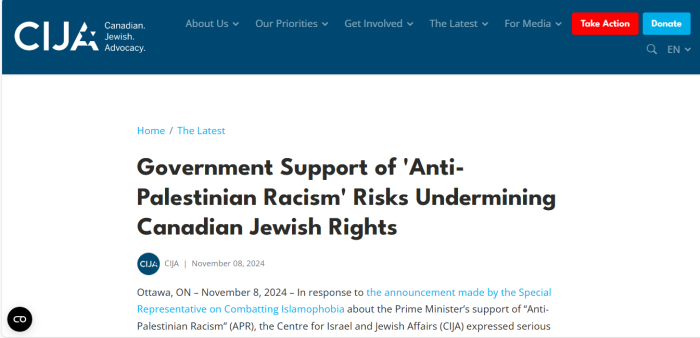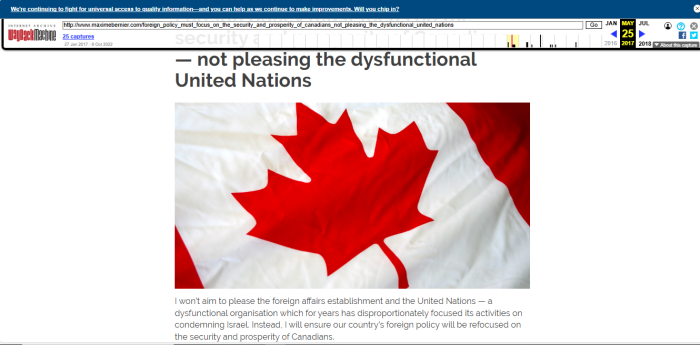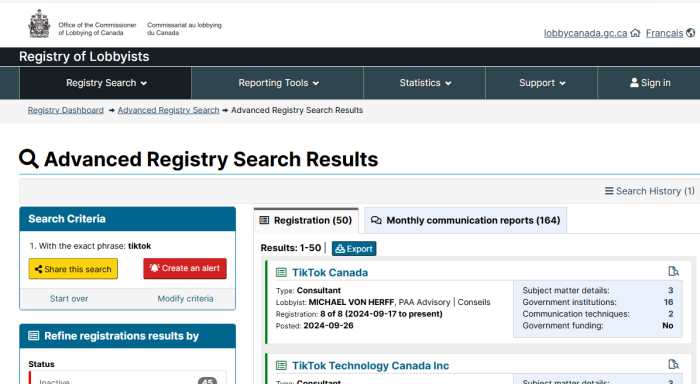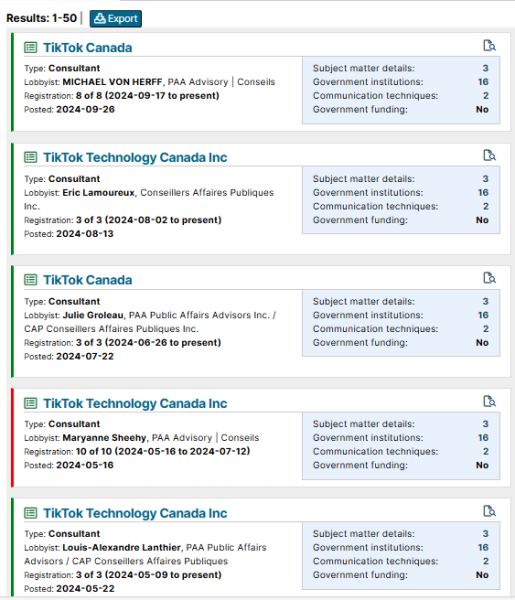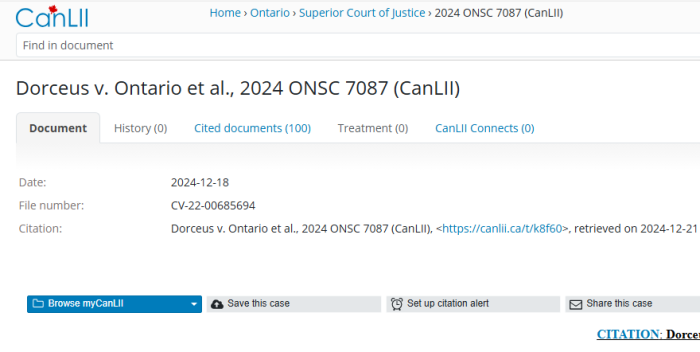
[53] I have the distinct impression from reading the Amended Claim as a whole that its object is not to vindicate the employment rights of the plaintiffs so much as it is to mount a political crusade in which the court will be used as a grandstand to conduct an inquiry into the effectiveness of vaccines and the effectiveness of government measures in response to the Covid-19 pandemic by opponents of those measures.
[154] …. If this was not clear from the outset, it should have become clear by the time the British Columbia Supreme Court, the British Columbia Court of Appeal, the Federal Court, and the Federal Court of Appeal struck out similarly drafted statements of claim prepared by the same lawyer. While the interests of a free and democratic society may warrant leeway with respect to the pursuit of unconventional claims at the outset, when such claims continue to be pursued after being struck out by four courts, they amount to an abuse of public resources.
[157] …. Plaintiffs’ counsel is a sole practitioner with a different cost structure than that of counsel for the Non-Governmental Defendants and that this is the fifth time that Plaintiffs’ counsel has litigated a motion to strike with respect to a claim of this nature. I expect having done this four times before, that there were significant cost efficiencies for Plaintiffs’ counsel, especially with respect to the factum.
-Justice Koehnen, Ontario Superior Court Judge
This week, 473 Plaintiffs, who are current and former health care workers, saw their Statement of Claim struck completely. This was partly because it was so poorly crafted, but also because most had collective bargaining agreements which prohibited lawsuits. Of those litigants, 395 belonged to some sort of union, while the other 78 did not. They had been employed all across Ontario.
If this sounds familiar, it should. It’s yet another scam lawsuit that has come crashing down on duped litigants. And this will cost them $190,000 for doing so.
Interestingly, one Plaintiff decided to retain a real lawyer and have a proper Claim drafted. That person was given permission to file. More on that later.
Previous Critique On Galati Case Aged Very, Very Well
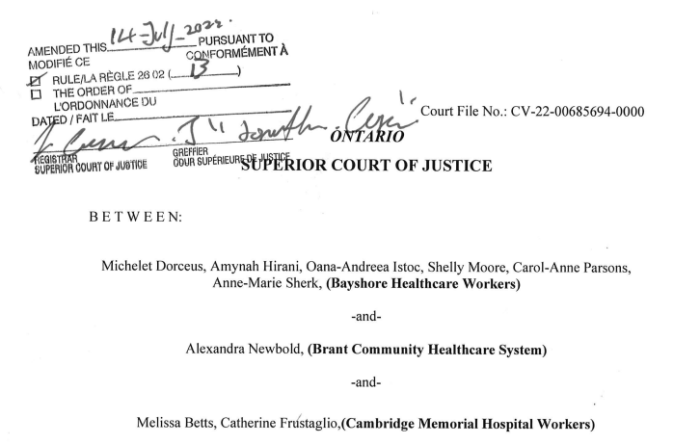
Back in July, this review was posted about the numerous defects in the Statement of Claim. And as predicted, jurisdiction was a fatal law, at least for the unionized Plaintiffs.
While the Statute of Limitations wasn’t really a concern of the Court here, it may be if Plaintiffs decide to try their luck elsewhere. However, every other item on this list made its way into Justice Koehnen’s ruling in some form.
- Failure To establish Jurisdiction of the Court
- Failure to seek Relief within Jurisdiction of the Court
- Failure to plead concise set of material facts
- Failure to keep evidence out of Claim
- Failure to remove argument from Claim
- Failure to plead facts which would support conclusions of law
- Failure to give Claim particulars
- Failure to specify who should pay damages
- Failure to properly plead s.2 (fundamental freedoms) Charter breaches
- Failure to properly plead s.6 (mobility rights) Charter breaches
- Failure to properly plead s.7 (security of the person) Charter breaches
- Failure to properly plead s.15 (equality) Charter breaches
- Failure to properly plead tort of intimidation
- Failure to properly plead tort of conspiracy
- Failure to properly plead tort of malfeasance
- Failure to state a Cause of Action
- Failure to appreciate Statute of Limitations
- Claim just a duplicate of other cases
Perhaps most notably, the Court finally called Galati out for recycling his earlier cases. It’s long overdue for this to happen.
Galati Called Out For REPEATEDLY Wasting Court Resources
(1) British Columbia Supreme Court (Justice Ross)
Action4Canada v British Columbia (Attorney General), 2022 BCSC 1507 (CanLII)
https://www.canlii.org/en/bc/bcsc/doc/2022/2022bcsc1507/2022bcsc1507.html
(2) British Columbia Court of Appeal (Justices Marchand, Dickson, Voith)
Action4Canada v. British Columbia (Attorney General), 2024 BCCA 59 (CanLII)
https://www.canlii.org/en/bc/bcca/doc/2024/2024bcca59/2024bcca59.html
(3) Federal Court of Canada (Justice Fothergill)
Adelberg v. Canada, 2023 FC 252 (CanLII)
https://www.canlii.org/en/ca/fct/doc/2023/2023fc252/2023fc252.html
(4) Federal Court of Appeal (Justices Gleason, Boivin, LeBlanc)
Adelberg v. Canada, 2024 FCA 106 (CanLII)
https://www.canlii.org/en/ca/fca/doc/2024/2024fca106/2024fca106.html
Now we have this gem, the 5th pleading to be struck:
(5) Ontario Superior Court of Justice (Justice Koehnen)
Dorceus v. Ontario et al., 2024 ONSC 7087 (CanLII)
https://www.canlii.org/en/on/onsc/doc/2024/2024onsc7087/2024onsc7087.html
Worth noting: Justice Chalmers of the Ontario Superior Court weighed in a year ago when CSASPP was sued for defamation. He dismissed that case under anti-SLAPP laws, and awarded $132,000 in costs. He was scathing in his decision.
[74] In the e-mail to Mr. Dicks dated January 29, 2022, Mr. Gandhi supported the statement with hyperlinks to support the statements. The statements made in the FAQ are also supported by hyperlinks that provides that factual support for the statements. The statements made in the e-mail to Mr. Dicks and in the FAQ, that the Plaintiff has been criticized by the courts in other cases, is supported by the following decisions: Sivak v. Canada, at para. 55, Galati v. Harper, at para. 35, Da Silva Campos v. Canada, at para. 12, Wang v. Canada, 2016 FC 1052, at para. 31, and Al Omani v. Canada 2017 FC 786, at para. 94-95.
[75] In the e-mail to Mr. Dicks, Mr. Gandhi states that lawyers who reviewed the Ontario claim, “said it was very poorly drafted” and “will most likely get struck”. I am of the view that there is justification for this comment. The Ontario pleading is prolix and argumentative. The claim advances pseudo-legal concepts and conspiracy theories that the pandemic was pre-planned and executed by the WHO, Bill Gates, the World Economic Forum and unnamed billionaires and oligarchs. The similarly drafted A4C claim was struck by Justice Ross. In doing so, he described the pleading as “bad beyond argument”.
[88] Here, the action commenced in Ontario by the Plaintiff is prolix and contains bizarre conspiracy theories. The action he commenced in British Columbia is similar. I am of the view that “what is really going on” in this case is an attempt by the Plaintiff to stifle public criticism about a class action claim that is not properly pleaded and improperly asserts bizarre conspiracy theories that are ineffective and have little or no chance of success.
Factoring in Justice Chalmers, 10 different Judges in 6 separate Court hearings have made determinations that this type of litigation is frivolous, an abuse of the Court system, improperly pleaded, and has little to no chance of success.
Keep in mind, this list would be a lot longer, if not for several cases that were dropped. These include: (a) Vaccine Choice Canada; (b) Katanik / Take Action Canada; (c) Children’s Health Defense Canada; and (d) Sgt. Julie Evans / Police on Guard.
Arbitration/Grievance Requirement Bars Unionized Workers
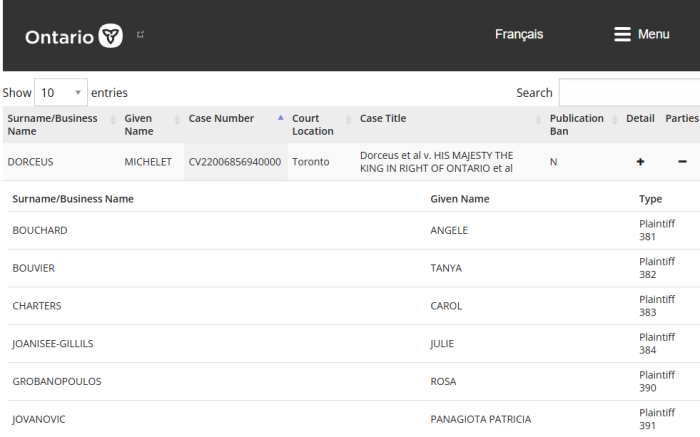
[13] The plaintiffs’ core complaint is that their employment was suspended or terminated as a result of their employer’s COVID-19 vaccination policy. Suspension and termination are core elements within the jurisdiction of labour arbitrators under the labour relations regime. The fact that the plaintiffs also go on to characterize their claims as ones for conspiracy, intimidation, intentional infliction of mental anguish and breach of the Charter does not change the analysis. All of those complaints remain rooted in the employment relationship and its suspension and termination.
Despite attempts to frame this (Dorceus) as conspiracy, intimidation, and a variety of other torts, Justice Koehnen stated that this is really about litigants having their employment conditions altered to require these vaccines. This was essentially constructive dismissal.
This finding was fatal to the unionized Plaintiffs, who were barred from the Courts.
Once Again, No Material Facts Or Particulars Pleaded
Rules of Pleading — Applicable to all Pleadings
Material Facts
.
25.06 (1) Every pleading shall contain a concise statement of the material facts on which the party relies for the claim or defence, but not the evidence by which those facts are to be proved.
Rules of Pleading — Applicable to all Pleadings
Nature of Act or Condition of Mind
.
25.06(8) Where fraud, misrepresentation, breach of trust, malice or intent is alleged, the pleading shall contain full particulars, but knowledge may be alleged as a fact without pleading the circumstances from which it is to be inferred.
Regular readers will have heard the terms “pleading facts” and “pleading particulars”. While the numbering systems differ, the Rules are the same across Canada.
| JURISDICTION | PLEAD FACTS | PLEAD PARTICULARS |
|---|---|---|
| Federal Court | Rule 174 | Rule 181 |
| British Columbia | Rule 3-1(2)(a) | Rule 3-7(17) |
| Manitoba | Rule 25.06(1) | Rule 25.06(11) |
| Ontario | Rule 25.06(1) | Rule 25.06(8) |
| Nova Scotia | Rule 38.02(2) and (3) | Rule 38.03(3) |
From the ruling, we get this information:
[49] The Amended Statement of Claim is, at best, unusually drafted. A statement of claim is supposed to contain material facts on which the action is based. The Amended Statement of Claim contains few material facts about the employment of any of the 473 plaintiffs or the circumstances of their suspension or termination. Mr. Galati explained in oral argument that if the claim contained such facts, it would run into the hundreds of pages and would be challenged as unwieldly. That perhaps speaks to the advisability of pleading this as a consolidated claim.
Galati sued on behalf of nearly 500 people. He was required to plead facts about each Plaintiff that would establish a case for everyone. He had to plead facts about all the (alleged) Charter violations for each Plaintiff. A proper suit for so many people would have been several hundred pages in length. Other than naming their specific employers, he provided no detail about any of them.
Instead, it was the Defendants who compiled a 13,000 page, 23 volume Motion Record in preparing their Motion to Strike.
Even if this was a Class Action — which it wasn’t — sufficient facts would still have to be pleaded for every Representative Plaintiff.
Another missing part was particulars. When alleging malice, bad faith, malfeasance, or a host of other torts, they must be spelled out in detail. Procedurally, Defendants cannot be left guessing what the case against them is.
Plaintiff Beth Ann Dick Goes Her Own Way
[146] The plaintiff Beth Ann Dick provides an example of the sorts of considerations at issue here when determining whether leave to amend should be granted. Ms. Dick was initially represented by Mr. Galati. She says that she was not informed about the specific claims that Mr. Galati made on her behalf, did not speak with him, and did not meet him to discuss the individual circumstances of her claim, nor was she aware of the types of legal argument that would be made on her behalf.
[147] She has since retained Mr. R. P. O’Connor who has delivered a more conventional fresh as amended statement of claim. It narrows the claim to solely that of Ms. Dick against her former employer, removes the allegations of Charter breaches, removes outlandish allegations of false pandemics and crimes against humanity, and clearly pleads the necessary facts underlying causes of action in tort, contract, and breach of statute that she advances.
[148] Mr. O’Connor’s proposed amended statement of claim is an example of a pleading that survives a challenge under Rule 21. I grant leave to Ms. Dick to file the amended pleading she proposes.
Beth Ann Dick was a Plaintiff in the original case, but bailed out and retained a real lawyer. Her new counsel, R.P. O’Connor sent in a proposed Amended Statement of Claim that actually pleaded valid Causes of Action. It is (more or less) straight breach of contract.
If other Plaintiffs had been represented by a competent lawyer, things could very well have ended differently for them.
While the non-unionized Plaintiffs were granted Leave to Amend, any who want to will likely need to hire a better lawyer.
Missed Opportunity: Bill Galati For The $190,000 In Costs
While the Plaintiffs were hit with $190,000 in Court costs, this could have ended differently. If Justice Koehnen was serious about lawyers not abusing the Court process with duplicate Claims, he could have ordered Galati himself to pay. Rest assured, such baseless litigation would virtually disappear if lawyers were personally responsible for what they file.
Instead, it’s always the clients who have to pay, regardless of how badly (or how often) their counsel screws up.
And on a final note, Action4Canada eventually submitted their Amended Notice of Civil Claim (NOCC), nearly a year after the Court of Appeal laughed them out of Court. While much shorter, it contains many of the same defects that Justice Ross mentioned, and adds new ones in. Expect another Application to Strike.
DORCEUS DOCUMENTS:
(1) Grifters Main Page
(2) https://www.canlii.org/en/on/laws/regu/rro-1990-reg-194/latest
(3) https://www.ontario.ca/page/search-court-cases-online
(4) Dorceus Statement Of Claim
(5) Dorceus Amended Statement Of Claim
(6) Dorceus Defendant Moving Party Factum SJM Government
(7) Dorceus Defendant Moving Party Factum SJM Hospitals
(8) Dorceus Plaintiff Responding Factum SJM
(9) https://www.canlii.org/en/on/onsc/doc/2024/2024onsc7087/2024onsc7087.html
PREVIOUS DECISIONS:
(1) https://www.canlii.org/en/bc/bcsc/doc/2022/2022bcsc1507/2022bcsc1507.html
(2) https://www.canlii.org/en/bc/bcca/doc/2024/2024bcca59/2024bcca59.html
(3) https://www.canlii.org/en/ca/fct/doc/2023/2023fc252/2023fc252.html
(4) https://www.canlii.org/en/ca/fca/doc/2024/2024fca106/2024fca106.html
ACTION4CANADA:
(1) A4C Amended Notice Of Civil Claim

